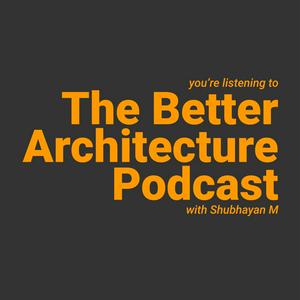Season 2: Architecture X Media Studies
Ep. 26: Ground Up, Nipun Prabhakar
In episode 26, Nipun Prabhakar shares how his path as a photojournalist, writer, and community architect has been shaped by a deep curiosity and a commitment to authentic storytelling. He discusses the interconnectedness of architecture and media, emphasizing that meaningful work comes from focusing on process, ethics, and real engagement rather than instant gratification. Drawing on his experiences working with grassroots communities and documenting real-life stories, Nipun highlights the importance of listening, learning on the ground, and building genuine relationships. He encourages young professionals to diversify their skills, seek out mentors, and immerse themselves in different fields to discover their passions. For Nipun, credibility and impact are built over time through thoughtful, experience-driven work that prioritizes substance over superficiality.
Guest: Nipun Prabhakar
Designation: Independent photographer, journalist, and architect, Founder - Dhammada Collective
Bio: Nipun Prabhakar is an independent photographer, journalist, and architect based in Delhi and Bhopal. He works closely with South Asian indigenous communities, documenting stories where ideas, folklore, and the built environment meet.
His photographs probe the poetics and politics of everyday life. Training in architecture shapes how he reads space and climate, which in turn guides how he photographs and designs. This dual practice lets him both observe and participate, moving between fieldwork, images, and drawings with ease.
His work has appeared in The New York Times, The Washington Post, Rest of World, Wallpaper Magazine, People’s Archive of Rural India, The Hindu, The Aga Khan Award for Architecture, and Google Arts & Culture. He has collaborated on research and documentation with MIT, Cornell University, IDS (UK), and the University of Michigan.
Nipun received the Berkeley Essay Prize in 2014 and was the Cornell South Asia Fellow in 2019–20 for documentary work in Nepal. In 2023, he was invited to the Royal Institute of British Architects in London to present his work and join a roundtable at their first Architecture Photography Festival.
He is the founder of Dhammada Collective, an architecture and design practice focused on community architecture, participatory design, natural building, and circular construction.
LinkedIn | Instagram | Muck Rack | Dhammada Collective - Website | Instagram
- - - - - - - - - - - - - - - - - - - - - - - - - - - - - -
Website: www.betterarch.org
LinkedIn: https://www.linkedin.com/company/betterarch/
Instagram: https://www.instagram.com/betterarch_org/
Twitter: https://www.x.com/betterarch_org/
Facebook: https://www.facebook.com/betterarch.org/
Copyright 2025 @ The Better Architecture Project.


